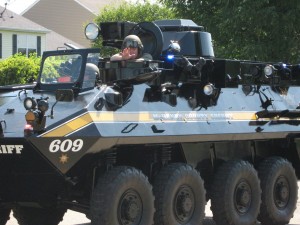People think the law is a science. Like, there are black-and-white rules that control everything. And that every situation is repeatable. For instance, I often get asked how to avoid getting arrested for DUI. You would think the answer is simple, right? You can drink. Or, you can drive. You can’t drink and drive, though.
Unfortunately, it’s not that simple. Plenty of people who are stone-sober have been arrested. A million innocent things might cause the police to believe you are driving under the influence. Think I’m making this up? Put 5 minutes of research into the similarity between diabetic shock and DUI. Or just watch this:
So, I have no specifics to offer. I do have a few general rules to offer, though. They may be a bit unorthodox, but stick with me. It will all make sense in the end.
I believe in these rules 100%.
Simple Rule #1: Don’t be Canadian. This might not sound hard, but nearly 34 million people on this continent have got this one wrong. Why don’t you want to be Canadian? It’s simple, really. They don’t have a bill of rights like ours. Or, they couldn’t find their own bill of rights with a map and compass. The bill of rights is what keeps the police out of your life. In the good, old U.S. Of A we have a couple hundred years of enforcing this idea. In Canada, they still don’t know. Saying “Canadian Bill of Rights” is a lot like saying “Canadian Military” in casual conversation. It sounds like it means something, but nobody really knows what it is.
Simple Rule #2: It’s not your business. If you happen to be walking down the road one day and see the police “dealing” with somebody, it is not wise to stick your nose where it doesn’t belong. You didn’t see what happened before, you don’t know what is going on, and you don’t know where it is going. They will arrest you to get you out of the way.
That’s not to say that you should tolerate police abuse. Not at all. Sticking your nose in the middle of it is only going to get you arrested, though. You may be more effective calling the State Police (if your “interaction” is with the locals). There is also nothing wrong with video recording anything that happens in public (although you shouldn’t simultaneously record audio in Illinois). Either way, if your focus is to avoid arrest it’s best to avoid things the police are doing that aren’t your business… even if that may not be fun.
I believe in these rules 100%. Like I said before, though, the law is not science. These two rules are good rules to live by. They may help many of you avoid arrest. There is always an exception, though…
.
P.S. Who is this guy to use “stranger” to describe another person?
